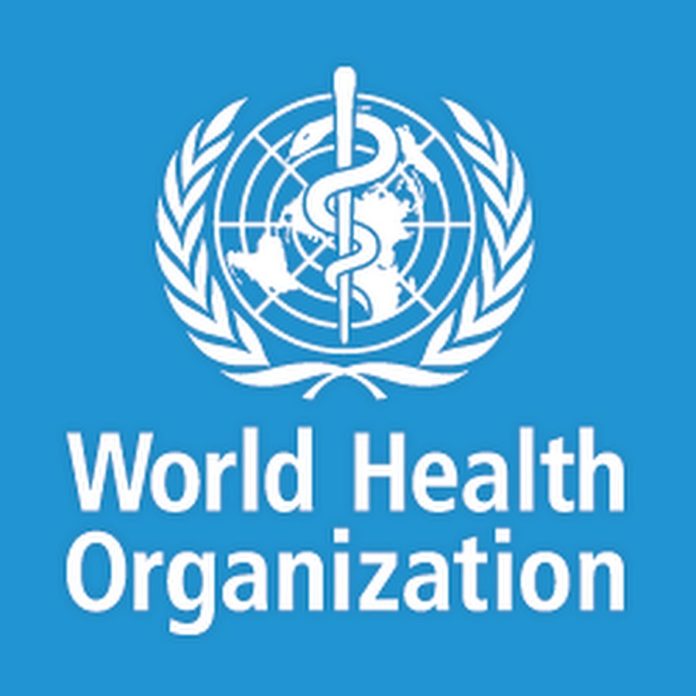
There is hope in the air.
Growing global immunity from the highly transmissible omicron coronavirus variant, coupled with encouraging downward trends of infections in a number of countries, seems to have caused a shift in tone among global public health officials, who are oh-so-cautiously signaling the pandemic may be entering a more manageable stage.
The World Health Organization marked two years since the start of the coronavirus pandemic in Europe and central Asia on Monday and said it was “entering a new phase.”
“The pandemic is far from over, but I am hopeful we can end the emergency phase in 2022 and address other health threats that urgently require our attention,” Hans Kluge, WHO regional director for Europe, said in a statement.
He said the omicron variant offered “plausible hope for stabilization and normalization” in Europe but warned “our work is not done.”
The omicron variant is displacing the delta variant at unprecedented speed in many countries and appears to cause less severe illness, Kluge said. Hospitalizations with the omicron variant also seem to result in lower intensive care unit admissions, he added.
“I believe that a new wave could no longer require the return to pandemic-era, population-wide lockdowns or similar measures,” Kluge said.
“This pandemic, like all other pandemics before it, will end, but it is far too early to relax,” he said.
Speaking separately on Monday, WHO Director General Tedros Adhanom Ghebreyesus also said the emergency phase of the pandemic could end this year if 70% of the population of every country got vaccinated, among other criteria.
But he also doused his optimism with a strong note of caution.
“It is dangerous to assume that omicron will be the last variant, or that we are in the endgame,” Ghebreyesus told an executive board meeting.
He also told journalists: “We are at a critical juncture. . . . We must work together to bring the acute phase of this pandemic to an end. We cannot let it continue to drag on, lurching between panic and neglect.”
The remarks come as a new descendant of the omicron variant, known as BA. 2, was identified this week. The WHO recommended Monday that officials begin investigating its characteristics to determine whether it poses new challenges for pandemic-weary nations. Viruses mutate constantly, mostly in harmless ways, and there is no current evidence that BA. 2 is more virulent, spreads faster or escapes immunity more than omicron.
Ghebreyesus also argued for the fairer distribution of vaccines globally to stop the pandemic from being prolonged and to prevent the emergence of new variants – only about 40 nations globally have fully vaccinated more than 70% of their populations so far, according to data from Johns Hopkins University. Countries such as Burundi and Haiti have fully vaccinated less than 1% of their populations.
Some countries have moved to relax their social restrictions, including Britain, Thailand, South Africa and France. The Netherlands is also expected to announce later Tuesday the reopening of its bars and restaurants.
In the United States, health experts have said that although the country has yet to reach its national peak of the omicron variant, the explosion of cases has begun to plateau in some areas. Surgeon General Vivek H. Murthy told journalists last week that “the challenge is that the entire country is not moving at the same pace. The omicron wave started later in other parts of the country.”
Chief medical adviser Anthony Fauci has said in recent days that it’s hard to say definitively whether the coronavirus was moving into an endemic phase. “We do not know that – and we have to be openly honest about that,” Fauci said Monday during a virtual panel session of the World Economic Forum.
“I think that’s what most people feel when they talk about endemicity, where it’s integrated into the broad range of infectious diseases that we experience,” Fauci added. As to whether the omicron variant could drive the coronavirus into that phase, he said, “I would hope that that’s the case, but that would only be the case if we don’t get another variant that eludes the immune response.”
Tom Frieden, former director of the Centers for Disease Control and Prevention, also sounded a positive note.
“I’m more optimistic about our ability to tame the pandemic than at any point since its emergence,” he tweeted Monday. “Unless, of course, a worse variant emerges, with the infectivity of Omicron and as deadly as Delta. That’s possible, but doesn’t change our ability to move forward if we vaccinate, mask, strengthen public health, and increase vaccine production capacity.”
Some scientists have previously speculated that the massive winter wave of omicron variant infections in the United States might produce a silver lining in the long run. They have said that the variant, while stunningly contagious, appears less likely to send someone to the hospital and that its transmissibility could boost immunity as it rips through the population. In doing so, once the tide of cases has ebbed, the variant could make the pandemic a less dangerous health emergency.
Other health officials, however, have pushed back, arguing that too much remains unknown about the virus to make such forecasts and that every time experts suggest it is nearing the endgame, the virus comes up with a new mutation. They also note that any broad immunity boost has come at a very high cost – with covid-19 responsible for the deaths of some 5.6 million people globally.
(c) 2022, The Washington Post · Adela Suliman
{Matzav.com}